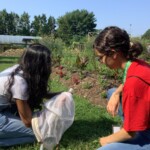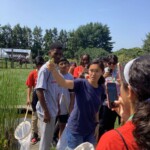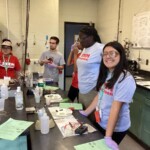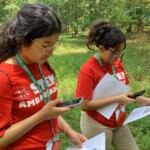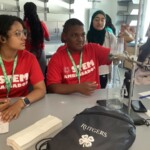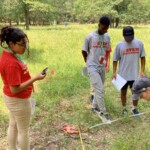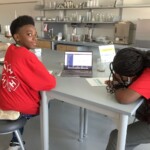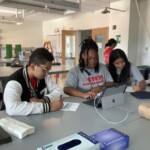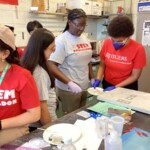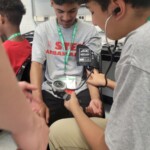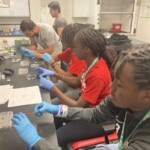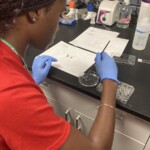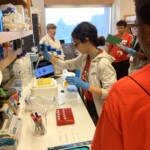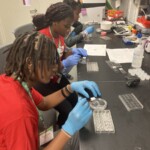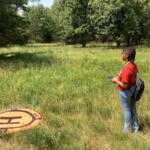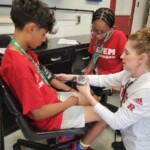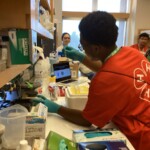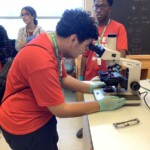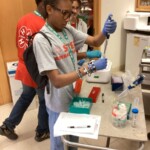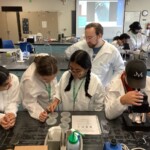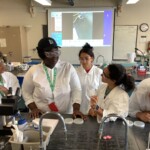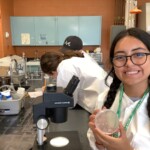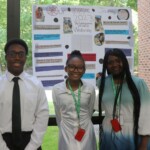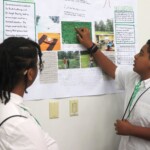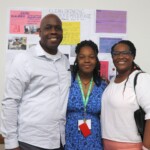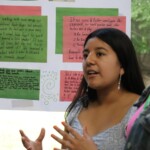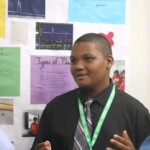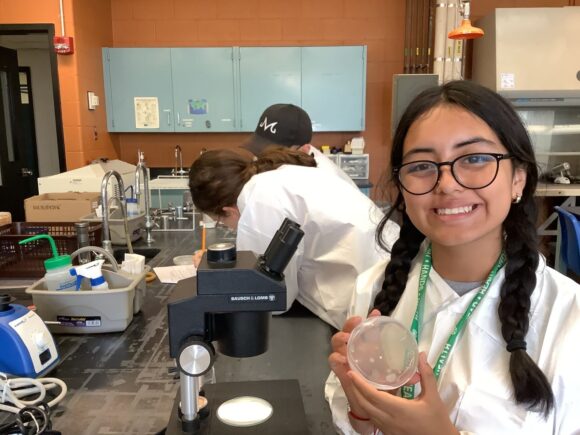 Since 2009, the Rutgers 4-H Youth Development department has trained and supported teenagers from several of New Jersey’s biggest cities to lead STEM programming for youth through camps, libraries, and afterschool programs. This July, the program’s 15th cohort of STEM Ambassadors spent a week at Rutgers-New Brunswick to expand their own understanding of STEM topics and career opportunities before beginning their outreach.
Since 2009, the Rutgers 4-H Youth Development department has trained and supported teenagers from several of New Jersey’s biggest cities to lead STEM programming for youth through camps, libraries, and afterschool programs. This July, the program’s 15th cohort of STEM Ambassadors spent a week at Rutgers-New Brunswick to expand their own understanding of STEM topics and career opportunities before beginning their outreach.
Janice McDonnell, 4-H STEM agent with Rutgers Cooperative Extension, co-founded the program and recruits over 50 Rutgers scientists and engineers each year to engage with the students through a variety of projects related to climate change, food production, renewable energy, public health, and more. Janice believes that “it is especially important to reach a diverse group of students who may not have a lot of STEM mentors in their communities – to expose them to several disciplines so they can explore their interests and develop skills and confidence.”
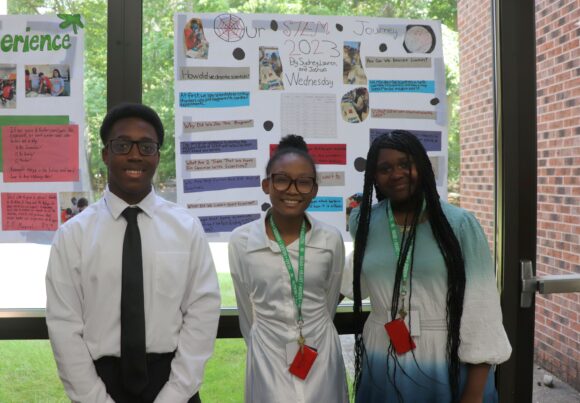 This year’s new STEM Ambassadors, from the most urban areas of Atlantic, Essex, Hudson, Mercer, Middlesex, Passaic, and Union counties, worked alongside Rutgers professors, postdocs, graduate students, and other researchers to address key issues related to environmental science and forest management, microplastics and water quality, solar and wind energy, microbiology, biomedical research, exercise physiology, and neuroscience. They also discovered how data science, computer science, and technologies such as robotics, underwater gliders, and drones are impacting these fields of study and industries.
This year’s new STEM Ambassadors, from the most urban areas of Atlantic, Essex, Hudson, Mercer, Middlesex, Passaic, and Union counties, worked alongside Rutgers professors, postdocs, graduate students, and other researchers to address key issues related to environmental science and forest management, microplastics and water quality, solar and wind energy, microbiology, biomedical research, exercise physiology, and neuroscience. They also discovered how data science, computer science, and technologies such as robotics, underwater gliders, and drones are impacting these fields of study and industries.
After a very immersive week of research, panel discussions, laboratory tours, and field studies, the 4-H’ers presented their work and reflections through a poster session for over 180 participants, family members, and other special guests. Rodrigo Sanchez Hernandez, 4-H staff leader of the Mercer County STEM Ambassadors, really appreciated the contributions of the teen leaders, “the aspect of the program that stands out to me the most is the realization of the participants – the realization that they too can be a part of the field, a part of the research, a part of science. Many programs help develop science and research skills, but very few programs instill a sense of belonging to young scientists.”
All of the 4-H STEM Ambassadors have pledged at least 50 hours of community outreach, working with their local 4-H staff to spark an interest in STEM through a variety of programs.


